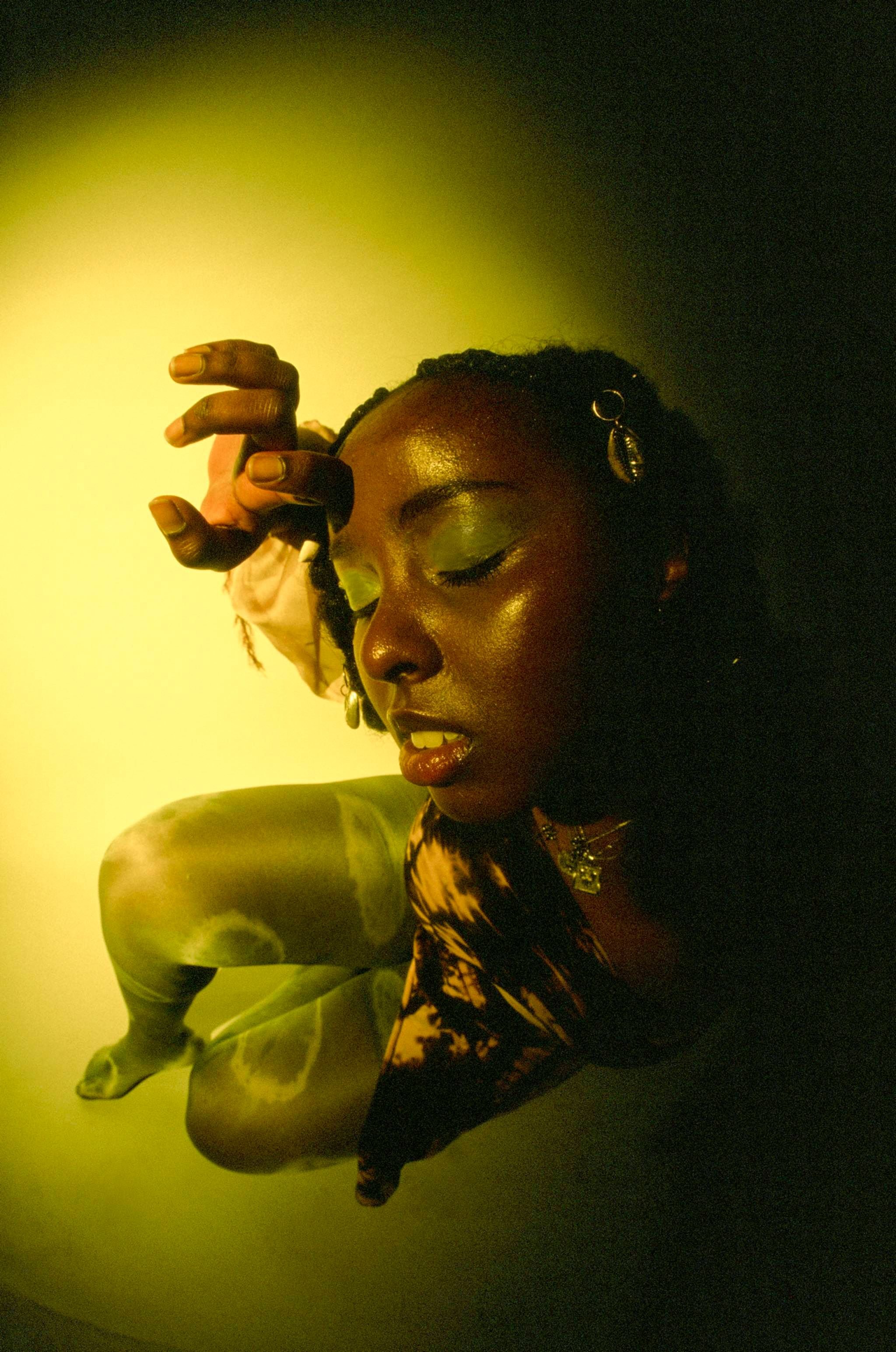POOLBLOOD: “I FELT LIKE I WAS THIS PERSON THAT PEOPLE HAD TO LEARN TO LOVE”
With their debut album set for release in January, VOCAL GIRLS caught up with Canadian artist poolblood to discuss growing up, navigating friendships, and learning how to live with yourself.
For me, music is all about connection,” Maryam Said, aka poolblood, muses over Zoom. “I think that’s ultimately what I’m searching for. I’m not really interested in being accepted, but more being able to have someone say that [my music has] helped them understand themselves or feel less alone.” This sense of kinship is what they hope people can take from ‘mole’ - their debut album as poolblood, and a follow up to 2019’s ‘Yummy’ EP. The ambling, bedroom-indie record shows off Maryam’s candid and intimate writing style, providing a brief but intense look into their world. “The whole idea of [‘mole’] is friendship, and being in a codependent friendship,” she explains. The name ‘mole’ (after the beauty mark, not the mammal) came to represent the discomfort they were feeling in their own skin - something that affected their friendships, but they found difficult to talk about. “I felt like I was this person that people had to learn to love, in a way,” she admits, “like a mole on your face.”
This kind of introspection runs throughout the album. Closing track, ‘my little room’, was born from therapy sessions spent deconstructing Maryam’s childhood, as well as thinking about their aspirations for the future. “I had to learn how to sit with my feelings and sit with the discomfort,” she says, “and use that as a way to get to know myself a little better. I think ultimately that song is about learning how to connect with myself.” Digging so deep paid off; not only did it produce a gorgeous acoustic lullaby, it’s also one of Maryam’s own favourites from the record. “I feel really proud of it,” she confirms. “It was the first time that I wrote a song in its entirety, with lyrics, in one go. I wrote it in ten minutes, which feels crazy!”. Her other favourite child, she reveals, is ‘sorry’: a wistful melody that practically sleepwalks through its strings and keys arrangement. “I feel really connected to that song,” she says. “The strings are just so beautiful. [I love] the production on that song, and also the fact that I got to play with this haunted, folky, dark element. That was really exciting to explore.”
Broadly, poolblood floats within the venn diagram of folk, pop and indie - “I think folk is definitely the main consensus,” Maryam agrees. This was a natural outcome of writing exclusively on their acoustic guitar, which remains a key element throughout the final product. However, they’re keen not to get stuck in any one sound. “I like bending genres,” she explains, “because I enjoy all types of music; I was listening to a lot of different artists and bands growing up, and I think it all just bled into making this record. [So] any kind of genre that gets thrown my way I’m like, ‘oh, cool’!”. Of these artists that have shaped poolblood’s sound, Simon & Garfunkel and Fiona Apple take the top spots. “Not only their instrumentation, [but] their lyricism and songwriting skills were so important to me,” she explains. “They’re interesting pop artists who also explored many different genres, but were still able to hone in on their own type of sound. I have always been intrigued by that.”
Alongside the moodier soundscapes of ‘sorry’ and ‘my little room’, the angelic harmonies on ‘twinkie’ show off a more joyful feel - even if the lyrics don’t quite match. “That song was about feeling like you can change, and that it’s okay,” Maryam recalls. Growing through your twenties is famously a bizarre experience - what with lifestyle changes, friendship dynamics, and the fact your prefrontal cortex has only just developed - and ‘twinkie’ is Maryam’s way of confronting these obstacles. “You want to honour the fact that [your friend is] becoming a different person, and so are you,” she says. “Society attaches this negativity when friendships fall out, but sometimes it’s just allowing somebody to be who they need to be, separately from you.” The track came together with producer Shamir Bailey and bassist Grant (who “played the craziest, greatest bass line ever”), and provides one of the record’s most upbeat moments.
These emotional highs and lows are deliberate, as they mean poolblood’s music can soundtrack many “small, intricate” parts of people’s lives. “Whether it’s making breakfast in the morning, listening to it intensively to heal yourself, or playing it at a party to have a great time,” Maryam says, “I think it’s so great [that music] creates human joy. That’s what I hope people take from this record.” Not only that, but they also appreciate their music’s representative power: “it’s exciting,” she explains, “to know that, as someone who is black [and] a folk artist, younger folks have a form of representation.” ‘mole’ may have come from Maryam’s own self-revelation - from being comfortable with their discomfort - but it’s sharing their findings with the world which makes this project complete.


